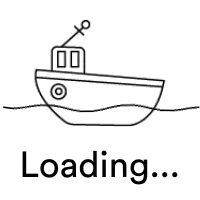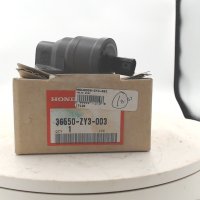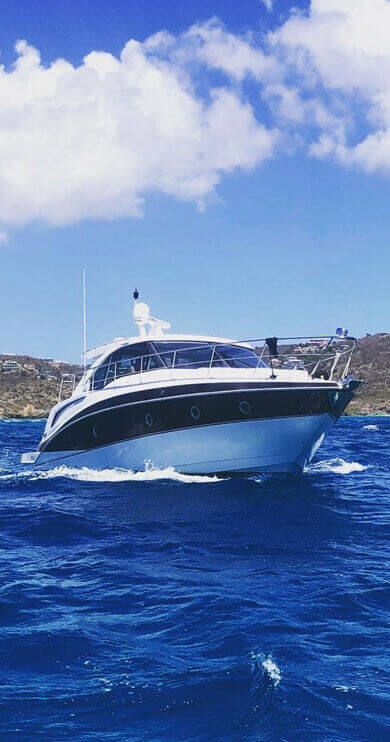Showing 49–72 of 1256 results
Best Boat Materials & Marine Materials
Maintaining your boat is a very significant thing because it allows your boat to stay in its best shape for a longer time. When you have the best boat, it means that your routine maintenance and repairs become much easier to handle. The choice and the variety of broadly used DIY boatbuilding stuff could be perplexing.
An option that determines not just the choice of the plan, the construction process, and processes, the tools employed, and the skills needed, but also the continuing care of your boat, frequency, complexity, and costs of their necessary routine maintenance.
Widely used DIY boat materials:
Nowadays, the most popular and widely used DIY Boat Materials and Marine Materials are :
-
Wood
- Conventional boat building material, broadly popular.
- Relatively light because of its strength.
- More expensive wood could be required for spars (spruce), decks, and decoration (teak).
- Widely available layouts
- Non-magnetic (Doesn’t influence the compass)
- Non-conductive
- Basic skills required to make your own boat
- Nice saw-dust is toxic and also a health hazard; use effective respiratory protection when sanding or similar
- Easiest tools needed for DIY boatbuilding
- Easy to shape as required
- Pleasant to touch in organic kind
- Has to be protected by painting/varnishing
- Looks good varnished, often used for decoration
- Routine maintenance/repainting required
- Easy to repair with fundamental skills
- Relatively Simple to puncture/damage
- The boat lifespan indefinitely increases as parts could be replaced easily as compared to other boat material.
-
GRP (Glass-Reinforced-Plastic, fiberglass):
- Rather popular
- At some stage considered a”wonder-material”, yet now there is a better Comprehension of its limitations
- Availability away from population centers makes the use of it a bit questionable.
- High price
- Heavy substance, necessitates substantial thickness for durability. The durability depends on the type of glass material used and also the quality of the polyester compound.
- Non-magnetic (does not influence the compass), non-conductive.
- Basic abilities are required to make your own boat which is simple to learn, yet can produce sub-standard Outcomes.
- Premium Quality products may require expensive equipment (professional workshops and skills).
- Very easy to form into any form.
- Couldn’t touch, nevertheless can be good looking (Gelcoat). Color can be included in the Gelcoat.
- Minimal maintenance for as long as the Gelcoat is undamaged.
- Simple to patch, professional help may be required for more extensive work.
- The main problem can be cracked Gelcoat underneath, fiberglass actually absorbs water and begins delaminating.
- Relatively heavy boat displacement Takes a bigger engine, yet provides a smoother ride.
- Lifespan typically 10-15 years, be more cautious if you buy second hand.
-
Aluminum
- Good boat building material
- Not all aluminum is made equal. Marine-grade aluminum utilized from the hull and spars is different from the one used where components need bending (handrails, bent pipes)
- High price
- Non-magnetic (Doesn’t affect the compass), highly conductive.
- Specialized metal-working Abilities and welding equipment required.
- There’s no change in color while welding (like with steel), so you don’t know how beautiful the material is but it takes experience.
- The hot-short substance to weld, the weld shrinks and readily deforms the substance when cooling. It requires careful preparation of the welding conditions and expertise. The weld is poorer than the foundation material.
- Sub-standard welds can be expensive to repair and unsafe to use.
- High Excellent welding may require expensive equipment.
- Apart from the magnifying aluminum welding gear needed, easy metal-working tools necessary for DIY boatbuilding, considerably softer and easier to work with.
- Easy to shape into any form, nevertheless building a round-bilge hull and bending complex-shaped handrails (plumbing ) will probably require services of an expert workshop to flex the plates.
- No painting needed for protection as painting is only aesthetic. After painted, It’s the paint that you are trying to protect from scratches.
- Minimum to no maintenance required.
- Relatively easy to spot or alter any part; nonetheless workshop requirements (electricity, argon gas, MIG, or TIG welder) required for almost any aluminum welding job.
- The main problem is electrolysis and to prevent it, use any other metal so far as possible, use stainless steel where necessary.
- The possibility of stray currents through the strand should be continuously monitored and prevented.
- Corrosion by electrolysis is a very slow process that can take many years to weaken the substance, after which the damaged components must be transformed.
-
Steel:
- Great boatbuilding material (too heavy for small boats).
- Largely available everywhere (much less as timber, though).
- Reasonable price, much lower compared to aluminum.
- Immensely strong and much harder than aluminum.
- Most basic metal-working and welding skills required.
- The cheapest, broadly accessible welding equipment used.
- The easiest material to weld and also produce good welds with basic skills.
- While welding, the heated area changes color to bright red so you can easily estimate how hot is your substance. The weld Is Really stronger than the material around it.
- Easy metal-working tools needed for DIY boatbuilding.
- Simple to shape into any kind, nevertheless building a round-bilge hull and bending complex-shaped handrails (pipes) will probably require services of an expert workshop to flex the plates.
- Regular periodic paint renewal required.
- Relatively easy to patch or alter any part; only basic metal-working tools and the simplest welding equipment required (electricity essential).
- The main difficulty is rust and Sandblasting into the bare metal before painting can solve the issue.
- It requires a very long time for the rust to do any serious harm, yet when it does, damaged parts must be changed.
There are various kinds of boat material, marine material, sailboat material, boat liner material, the best material for boat windows, and best boat material is available at Harbor Shoppers. So get your boat material now and build yours.



































